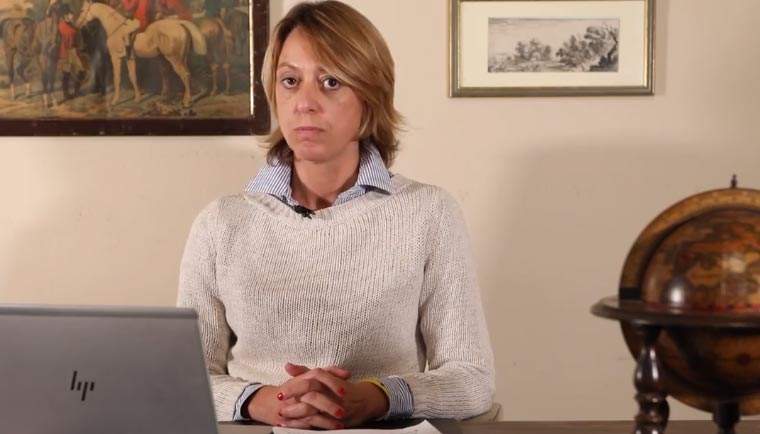Francesca Velani: to revive culture, we must work together
The 16th edition of LuBeC - Lucca Beni Culturali, the conference organized by Fondazione Promo PA and dedicated to the development, technology and knowledge of the cultural heritage sector, which this year was held on October 8 and 9 in the historic venue of the Real Collegio, ended a few minutes ago. This year there was a lack of the traditional fair with exhibitors, but there were a number of very intense meetings, workshops and seminars: so there was talk of how to revive the sector after the pandemic, of the activities of cities that are candidates for European capitals of culture, of connections between culture and tourism, of the social, economic and cultural impact of public foundations, of new technologies (starting with the latest in gaming), and of the latest practices in communicating culture. And again, the debate on the relationship between culture and health, the discussion on live performance, the goals of Agenda 2030, the relationship between public and private in culture, cultural welfare. And there was no shortage of training time, with the seventh edition of the Createch open lab, this year dedicated precisely to gamification, with 56 participants who designed gamingsprojects on theparticipating cities and territories (Alghero, Bolzano, Cerveteri, L’Aquila, Macerata and Emilia).
A very positive two days, despite the difficulties due to the health situation. “The balance of this edition,” Francesca Velani, director of LuBeC, told us, “is very good because we had the strength to carry on LuBeC in spite of everything, we had an important confrontation on many topical issues, important issues for the future, with people who realized that the world has changed. Yesterday’s speeches on the world of entertainment were interesting and very participatory, the one this morning on cultural foundations showed, through the data, that there is a lot of work to be done, that it is important to work on the territories, that it is fundamental to change the paradigm, and that cultural places must become our antenna of change, and therefore the larger cultural institutions must do it even more than the others. But this applies to all systems: culture is that element today that tells us that the territory can become stronger and more resilient. The ’resilience’ that is often talked about for major disasters is actually needed in the everyday of our lives. In my opinion, this edition of LuBeC is showing that there is great strength in this cultural system and it is the strength that will generate innovation.”
The claim of this edition was “Restart with culture, restart for culture.” But what does it take to restart? According to Velani, “it is necessary to get together, it is useless to work alone: to restart we need common ideas, common goals and also systematization of resources, this is fundamental. Working together, also because in today’s world it means having different skills that also manage to solve a problem that requires different skills: for complex problems you need great teams.”
Ample space, as has been the case for some editions now, was given to the candidate cities for the title of Italian Capital of Culture. “The common point that emerged,” said Francesca Velani, “is that everyone is working on strengthening the community through culture, so this message came through strongly. Each in a different way: Italy has proven to be a country of excellence that is extremely multifaceted. We need to maintain its specificity, but promote systems of governance, networking, models that are unified.” And finally, a note on the relationship between culture and tourism. “A research that we did as the Promo PA Foundation on the city of Lucca was presented,” Velani stressed, “which tells us that tourism cannot be the model for the development of culture. Investing in culture means having a cultural approach, and not tying it to tourism. Then everything else comes: tourism of course sees culture as an important reference point but that is not the only reference model and above all it cannot be the first. Also because tourists love culture because they love a cultural city, otherwise if we work differently we debase culture and its meaning.”
 |
| Francesca Velani: to revive culture, we must work together |
Warning: the translation into English of the original Italian article was created using automatic tools. We undertake to review all articles, but we do not guarantee the total absence of inaccuracies in the translation due to the program. You can find the original by clicking on the ITA button. If you find any mistake,please contact us.




























